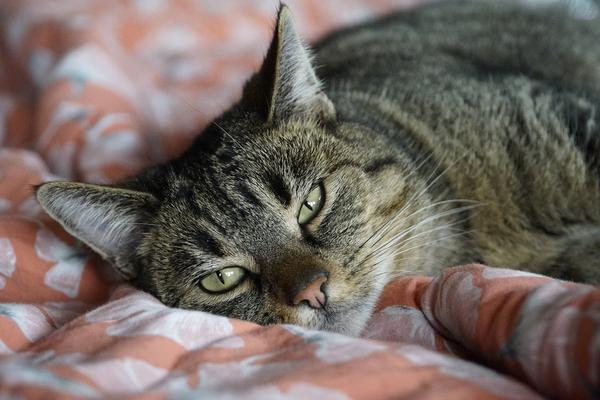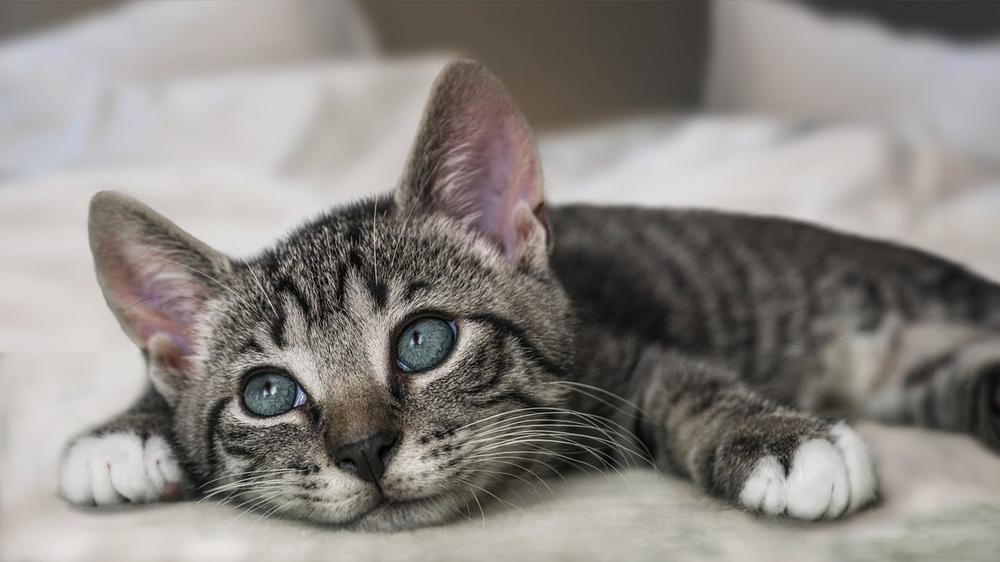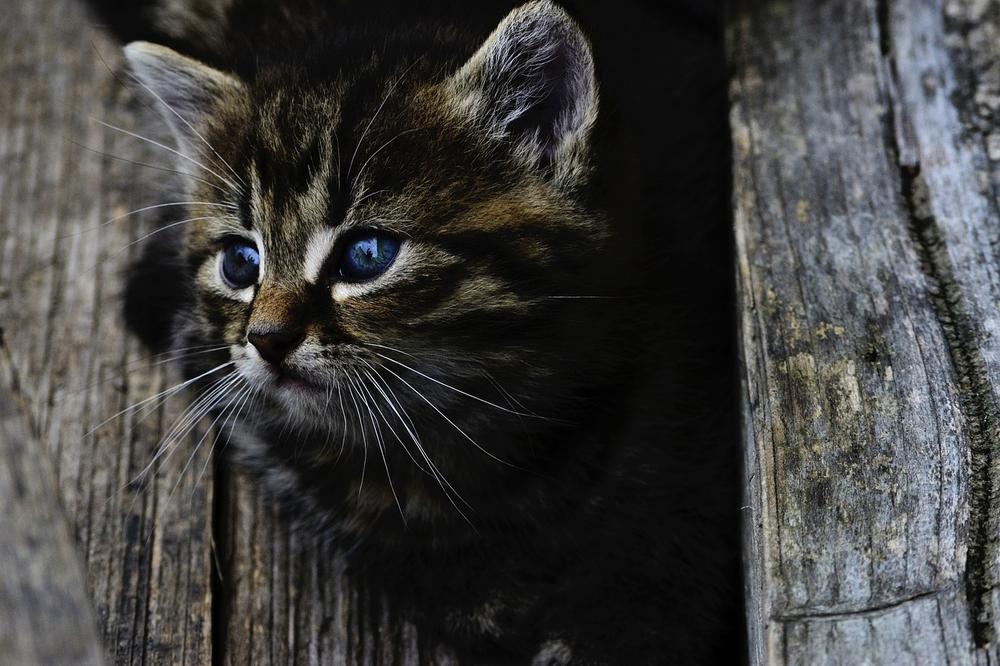How to Make a Cat Purr: My Secret Tricks That ALWAYS Work

Want to know how to make your cat purr?
Want to experience the bliss of a happy feline?
Want that deep connection with your fur baby?
You've probably tried everything, feeling like a stranded astronaut with no way back home.🚀
But fear not!
This guide has got you covered.
Get ready to unlock the purring magic.
Don't wait, your cat is longing for it!
How to Get Your Cat Purring
Provide a warm and comfy place for your cat
If you want your cat to feel happy, ensure they have a cozy bed.
Whether it's a heated cat bed or a soft blanket, give them a warm spot to relax.
It's important for their comfort.
Also, let them play and be active. Cats love exploring and having fun with toys.
So, ensure your home is safe for them and provide toys that will keep them entertained.
They'll really appreciate it.
Understand why purring is awesome
You might wonder why purring is so great. Well, it has a ton of benefits for both cats and humans.
It reduces stress, helps with breathing problems, lowers the risk of heart attacks, and even makes bones stronger.
Isn't that amazing?
Purring is also a way for cats to communicate and bond with others.

They start purring when they're little kittens to connect with their mom and siblings.
And guess what?
Other animals like hyenas, guinea pigs, raccoons, genets, and civets can also produce those lovely purring sounds.
Spend quality time with your feline friend
If you really want your cat to be happy, spend some quality time with them.
Show them affection, give them head scratches, and engage in fun play sessions.
This will make their hearts full of joy and strengthen your bond with these adorable creatures.
So, go ahead and set aside some special time for your cat every day.
Trust me, both you and your furry friend will feel happier and more connected. Who knows, you might even find yourself purring along with them!
Main points I'll expand upon further down this article:
- Cats have unique purrs with different tones and volumes.
- Purring can be a form of communication and serve various purposes.
- Not all cats can purr, and sudden changes in purring behavior may indicate health issues.
- Newborn kittens rely on their mother's purr for guidance.
- Cats may purr in different situations, including when angry, ill, or relaxed.
- Injuries or dental issues can disrupt a cat's ability to purr.
- Respect your cat's boundaries and let them live as they want.
- Cats need affection, attention, and their freedom respected.
- Overtraining a cat to purr can have negative effects on their well-being.
- Be cautious when petting a cat and avoid triggering discomfort or hissing.
But wait, there's even more to learn about the fascinating world of cat purring!
Did you know that every cat has its own unique way of purring, with different tones and volumes that make them truly one-of-a-kind?
Well, in the next section, I will reveal some tips and insights on how to unlock the full potential of your feline friend's purrs.
So, are you ready to discover the secret behind those mesmerizing vibrations?
Let's dive in!
How Do I Make My Cat Purr Louder?
Gentle massages feel great to your cat, especially in their favorite spots like behind the ears or at the base of their tail. Cats are special; each one has a purr that's all their own.
Their purrs have different tones and volumes, making them unique individuals.

As cats get older, their purrs may become softer or happen less often.
Did you know that purring serves different purposes for our feline friends?
It’s actually a fascinating way for them to communicate with us and other cats.
Reasons Your Cat May Not Purr
Here are 11 reasons why your cat might not be purring:
- Your cat could have a respiratory infection.
- Stress or fear may be causing your cat to withhold its purrs.
- Dissatisfaction with its surroundings or lack of stimulation can also lead to a non-purring kitty.
- If your cat is not domesticated, it may simply not have developed the habit of purring.
- Underlying health issues could be preventing your cat from purring.
- Sometimes, serious health problems can affect a cat's ability to purr.
- If your cat lacks comfort and happiness in its environment, it may choose not to purr.
- A change in behavior or appetite might impact your cat's purring habits.
- Newborn kittens without their mother's purr as a comforting presence may not purr themselves.
- Injuries or dental problems can make purring uncomfortable for your cat.
- Certain physiological limitations or subtle purrs may cause your cat to be less vocal.
Just because your cat isn't purring doesn't always mean it's unhappy.
Cats communicate through various noises, each indicating different emotions.
If your cat is constantly vocalizing or excessively purring, it's advisable to consult a veterinarian to ensure your feline friend's well-being. 😺
And if you've ever wondered whether your cat's purring is involuntary or voluntary, I have just the answer for you.
In my blog post, Is Purring Involuntary in Cats, I dive deep into this fascinating topic. Find out what really goes on behind those soothing vibrations and uncover the secrets of your feline friend's purring.
The Importance of Respecting Your Cat’s Preferences and Boundaries
To really connect with your cat, here's what you should do:
- Let your kitty come to you, don't force it. Wait for them to be in the mood and then show some love. This shows that you respect their personal space.
- Make sure they have safe spots where they can retreat when they want some time alone or feel overwhelmed. Like cozy hiding spots or elevated perches.
- Engage in playtime together regularly. It keeps them physically and mentally fit. Use toys they like, whether it's a feather wand or a toy mouse they can pounce on.
- Understand their body language. Cats don't speak our language, but they communicate through subtle cues. Pay attention to flattened ears, tail movements, and purring to know how they're feeling - content, anxious, or annoyed.
- Remember, no punishment! Negative reinforcement can damage trust and make your furry friend avoid you. Instead, focus on positive reinforcement by rewarding good behavior with treats or praise.
Respecting boundaries doesn't mean holding back love and affection.
It means understanding and honoring their unique needs, so they feel comfortable and secure in their environment.
Potential Risks and Drawbacks of Encouraging Your Cat to Purr
Encouraging your cat to purr can be a magical experience, but there are some things to bear in mind:
- Don't go overboard with treats: Using treats excessively to coax purrs can cause weight gain and health problems.
- Be aware of the downsides: Pushing your cat too hard to purr can leave them mentally, emotionally, and physically drained.
- Handle with care: When petting your cat, be cautious of touching their belly, as it might trigger hisses instead of purrs.
- Look out for discomfort signs: If your cat purrs with their mouth open or shows signs of unease, they may need veterinary attention.
Remember that purring benefits both you and your cat.

Just be sure to approach it responsibly and make your furry friend's well-being a top priority.
And that wraps up today's article.
If you wish to read more of my useful articles, I recommend you check out some of these: Why Do Cats Lick Themselves After You Pet Them, Do Cats Understand Kisses, Why Does My Cat Sit in the Bathtub, Why Is My Cat Hiding in the Closet, and Do Kittens Bite When Teething
Talk soon,
-Sarah Davis